Turtles in the Maldives: A Guide to These Fascinating Sea Creatures
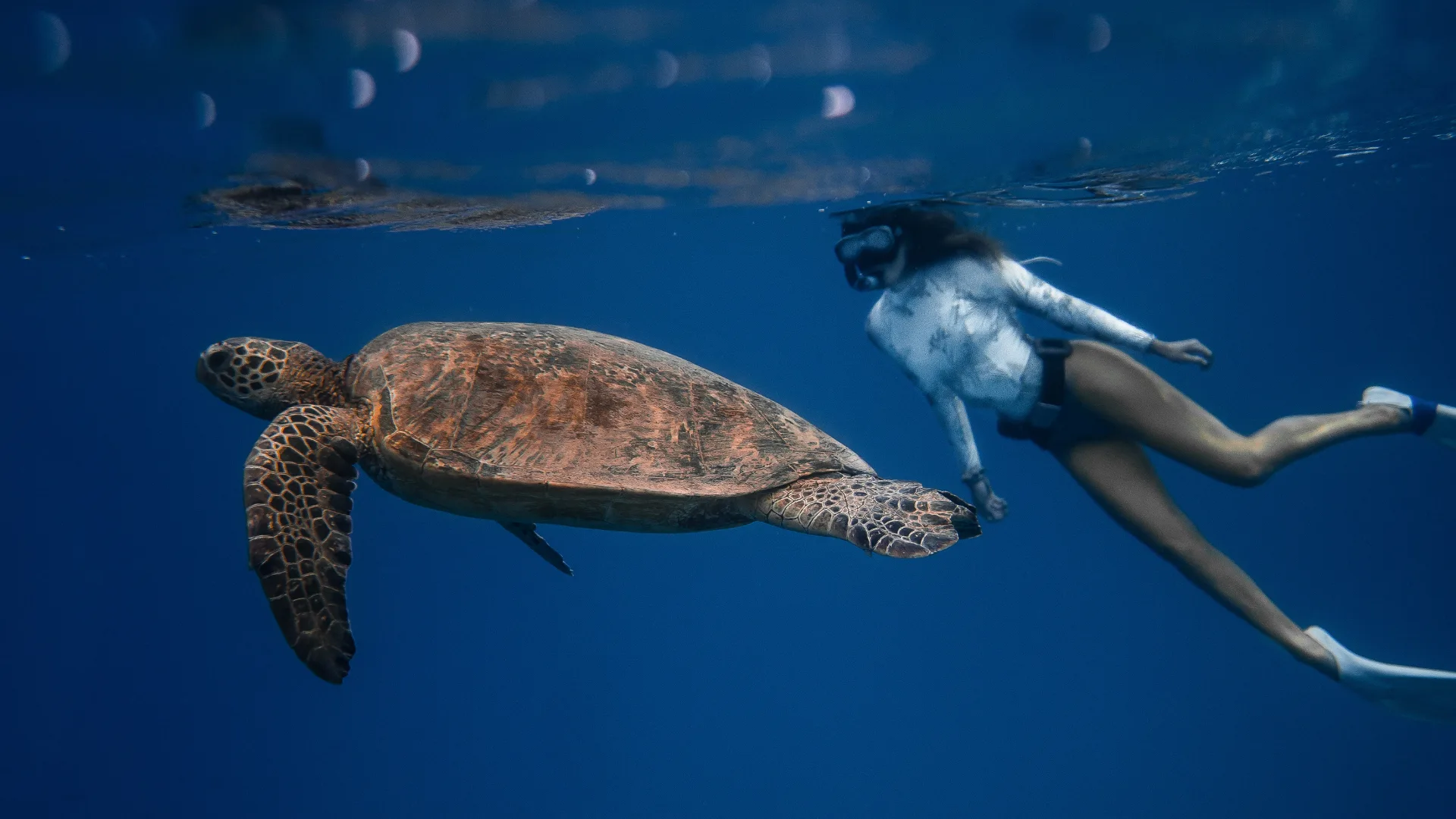
The Maldives, with its crystal-clear waters and vibrant coral reefs, is not only a tropical paradise for tourists but also a critical habitat for various marine species, including sea turtles. These ancient reptiles have been roaming the oceans for over 100 million years, and their presence in the Maldives is a testament to the archipelago's rich biodiversity. In this article, we’ll explore the different types of turtles found in the Maldives, their behavior, conservation efforts, and how you can experience these magnificent creatures during your visit.
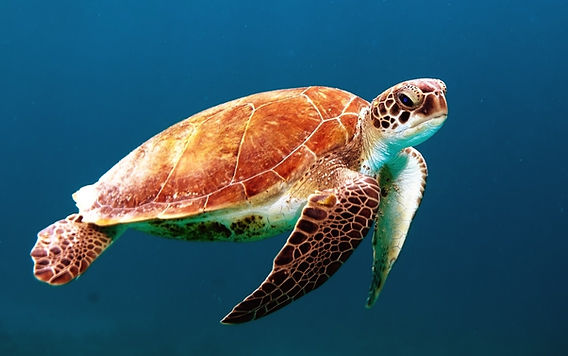
Types of Turtles Found in the Maldives
The Maldives is home to five species of sea turtles:
1. Green Sea Turtle (Chelonia mydas): The most commonly sighted turtle in the Maldives, green sea turtles are known for their herbivorous diet, primarily consisting of seagrass and algae. They can often be spotted grazing on the underwater vegetation around the atolls.
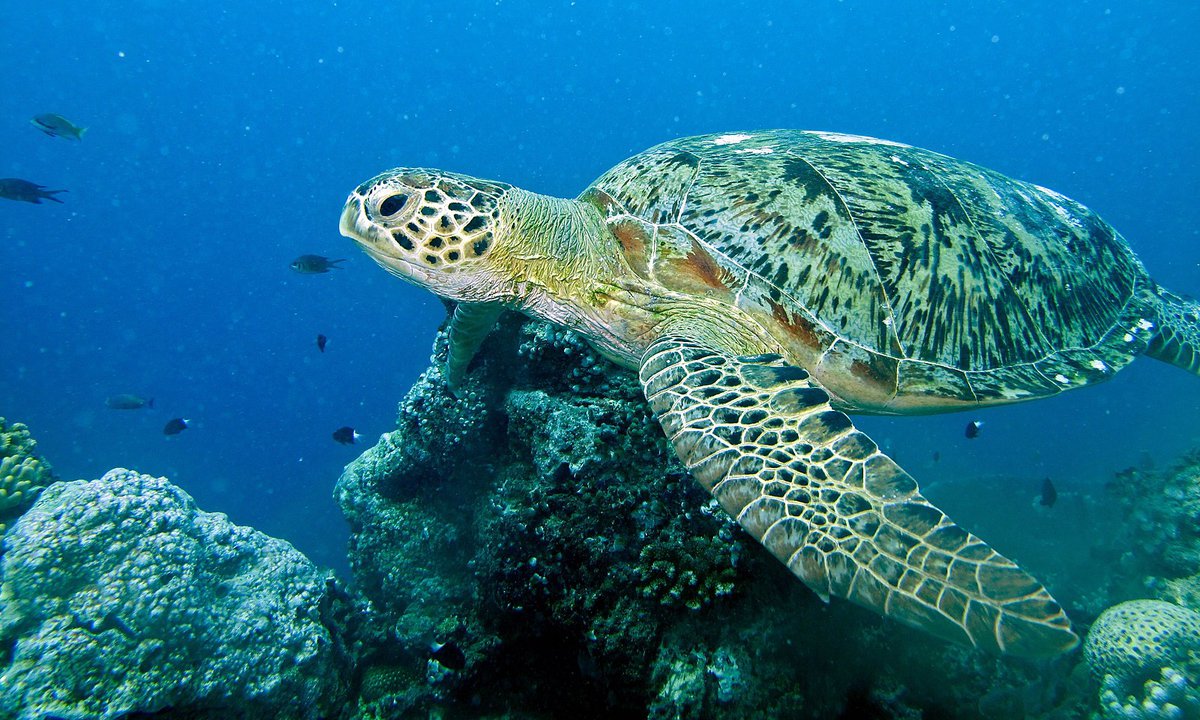
2. Hawksbill Turtle (Eretmochelys imbricata): Recognizable by their pointed beaks and beautiful shell patterns, hawksbill turtles primarily feed on sponges and are vital for maintaining the health of coral reefs. Their presence in the Maldives is essential for the balance of the marine ecosystem.
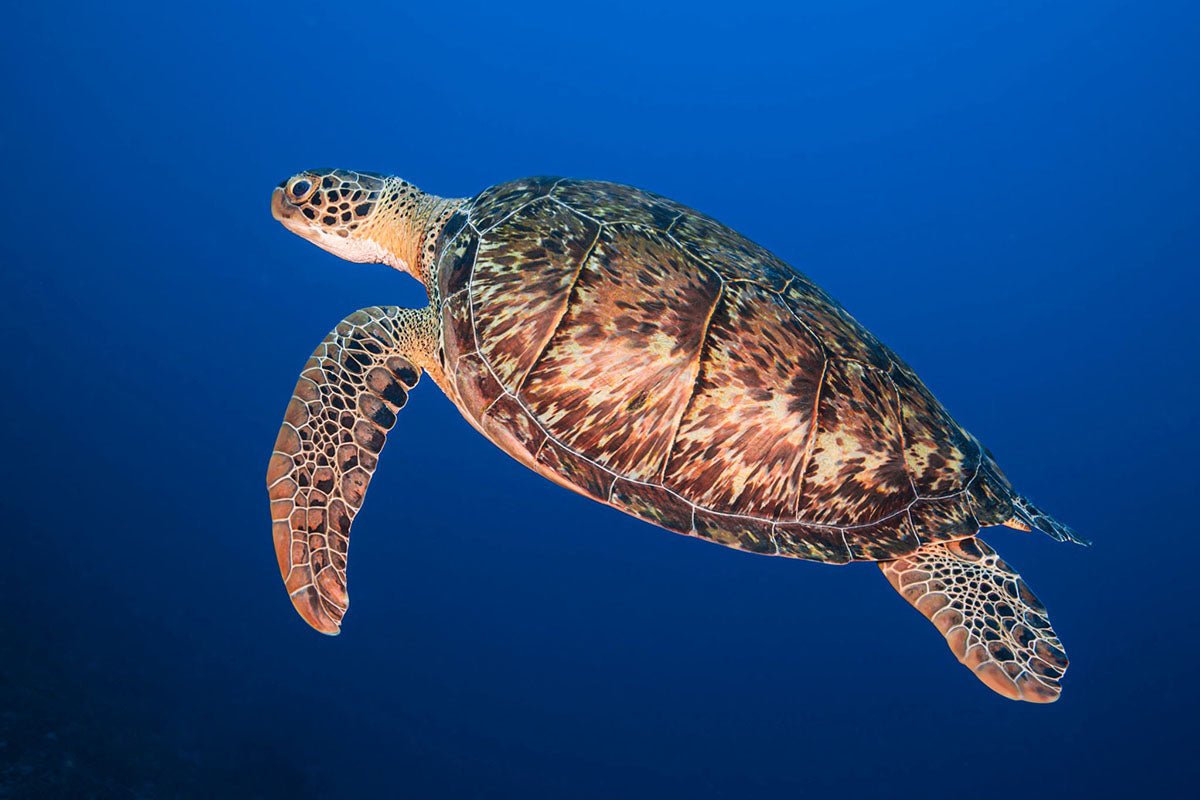
3. Loggerhead Turtle (Caretta caretta): Loggerheads are known for their large heads and powerful jaws, which allow them to consume hard-shelled prey like crabs and conchs. Though less common than green turtles, they can still be spotted in Maldivian waters.
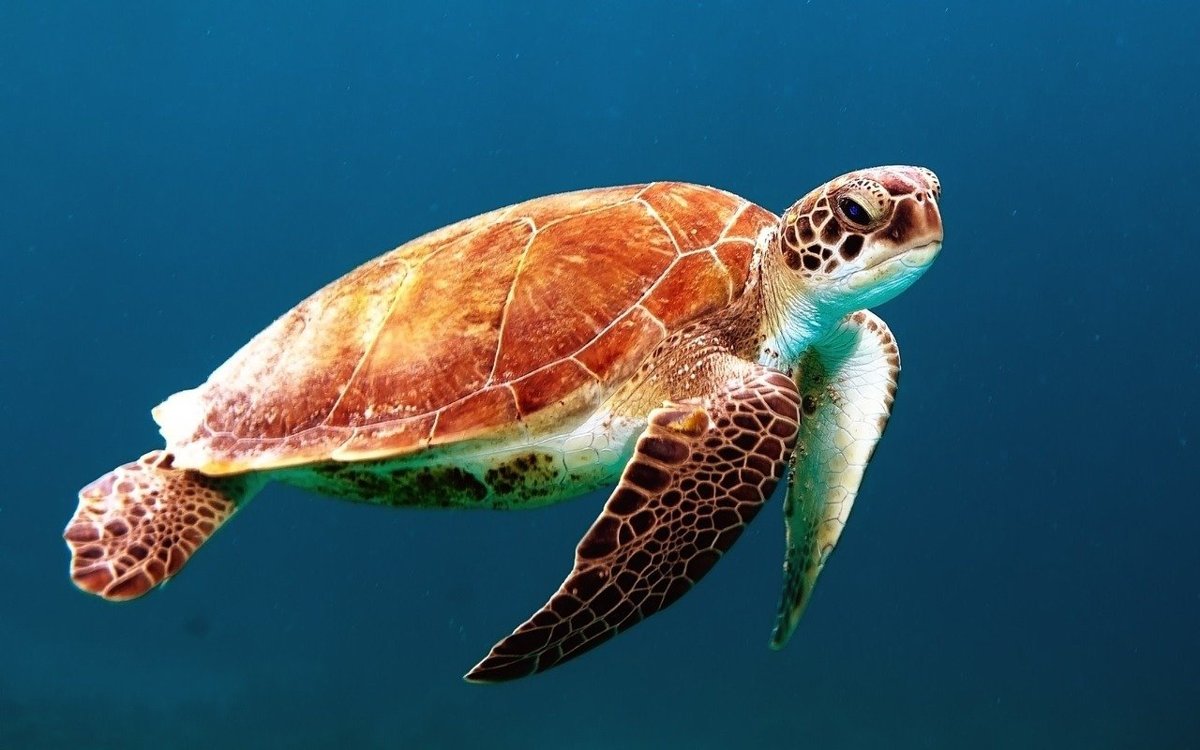
4. Olive Ridley Turtle (Lepidochelys olivacea): These smaller turtles are known for their unique nesting behavior, often forming large arribadas (mass nesting events) on specific beaches. While they are not as frequently seen in the Maldives, they occasionally pass through.
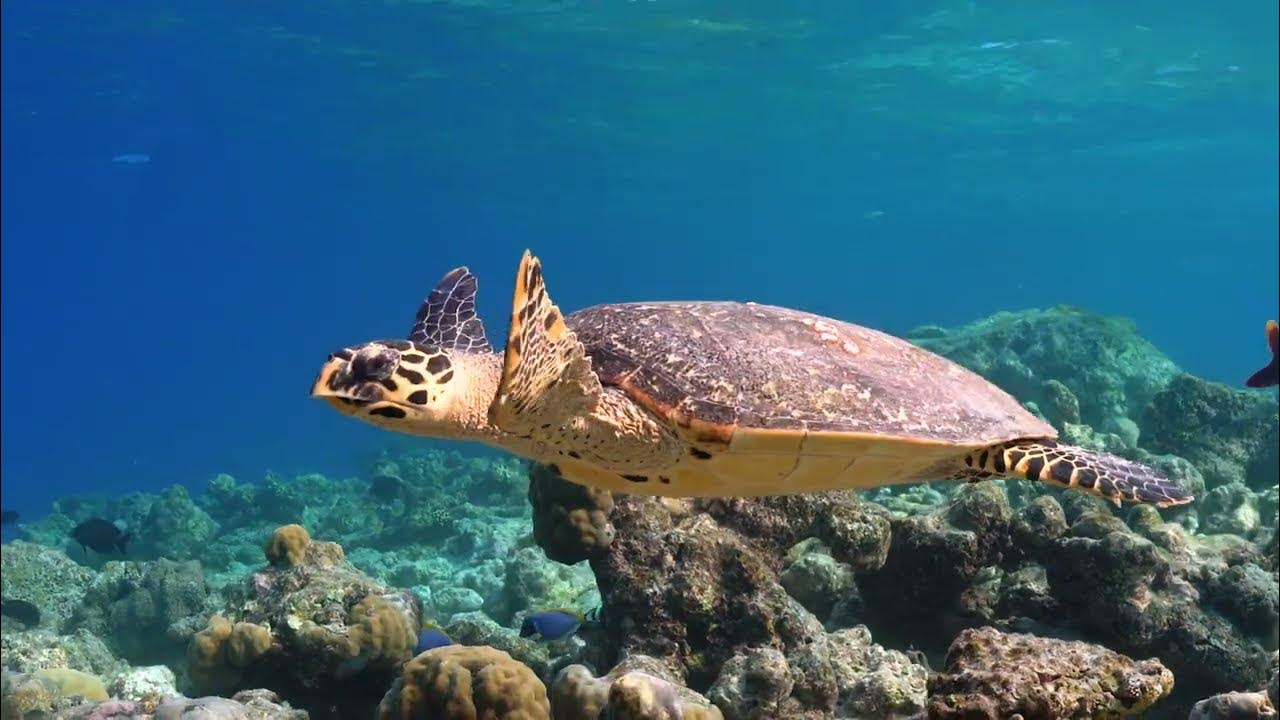
5. Leatherback Turtle (Dermochelys coriacea): The largest of all sea turtles, leatherbacks can weigh up to 2,000 pounds and are known for their deep-diving capabilities. They primarily feed on jellyfish and are less commonly observed in the Maldives.
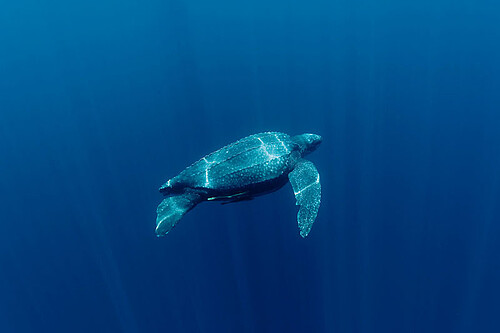
Turtle Behavior and Habitats
Sea turtles in the Maldives are known for their migratory behavior, traveling long distances between feeding and nesting grounds. The warm waters of the Maldives provide ideal conditions for breeding, with sandy beaches serving as nesting sites. Female turtles return to the same beaches where they were born to lay their eggs, creating a cyclical pattern crucial for their survival.
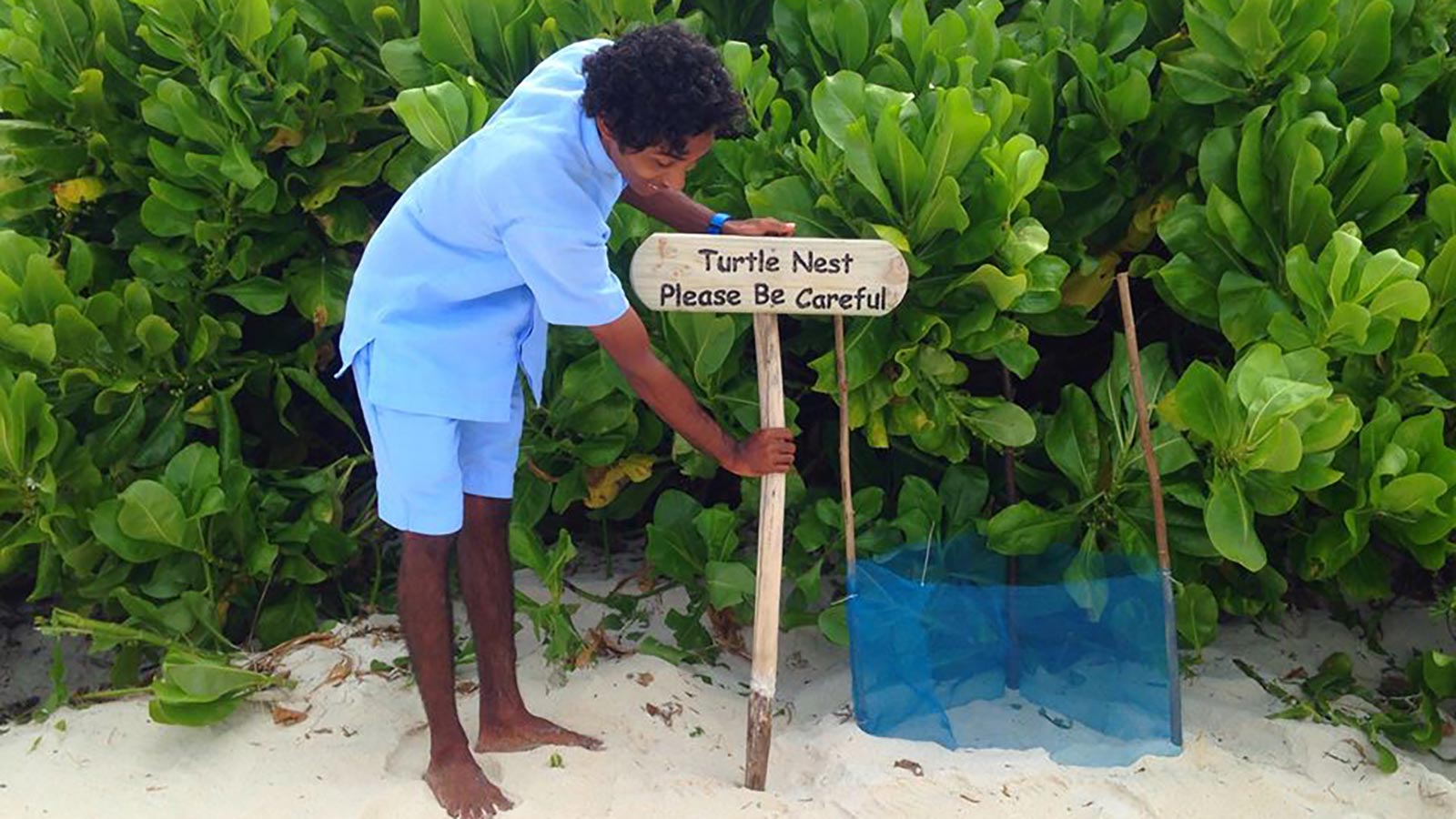
In the Maldives, turtles are often found in protected marine areas, seagrass beds, and coral reefs. Snorkelers and divers frequently encounter these majestic creatures, especially in areas like Maaya Thila, Fish Head, and around many resort house reefs.
Conservation Efforts
Despite their adaptability, sea turtles face numerous threats, including habitat loss, climate change, and poaching. The Maldivian government, along with various NGOs and local communities, is actively working to protect these vulnerable species. Initiatives include:
- Establishing Marine Protected Areas (MPAs): These areas help conserve essential habitats and promote biodiversity, providing a safe haven for sea turtles and other marine life.
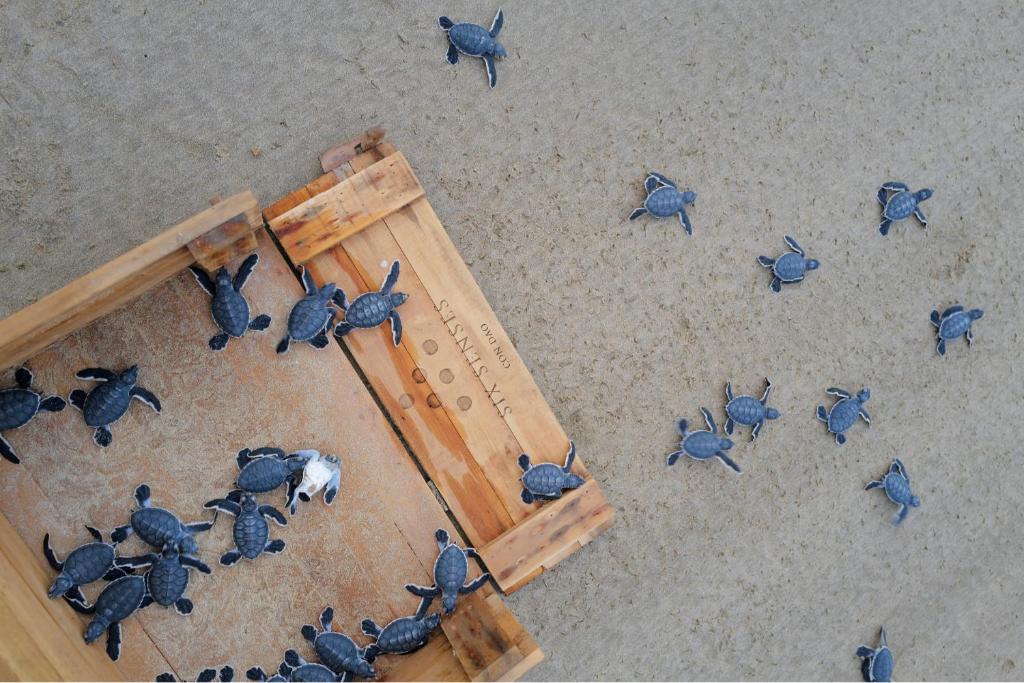
- Community Awareness Programs: Local communities are educated about the importance of sea turtles and their role in the marine ecosystem. Involving local populations in conservation efforts ensures better protection and support for these creatures.
- Research and Monitoring: Ongoing research helps scientists understand the behaviors and migration patterns of sea turtles, aiding in the development of effective conservation strategies.
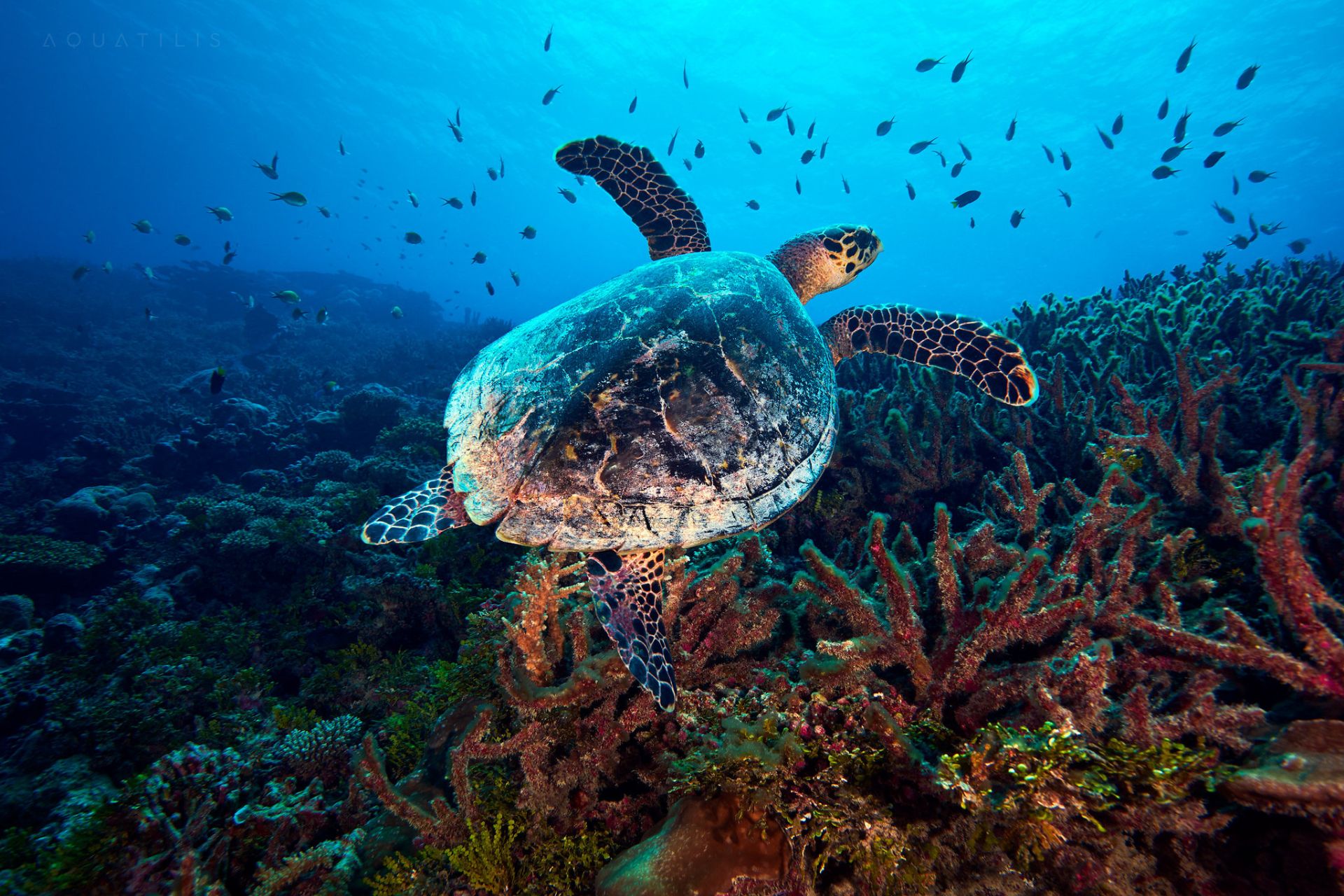
How to Experience Turtles in the Maldives
If you’re planning a trip to the Maldives and want to encounter sea turtles, here are some tips:
1. Snorkeling and Diving: Many resorts and dive schools offer guided snorkeling and diving tours to popular turtle hotspots. Look for excursions that specifically focus on marine life.
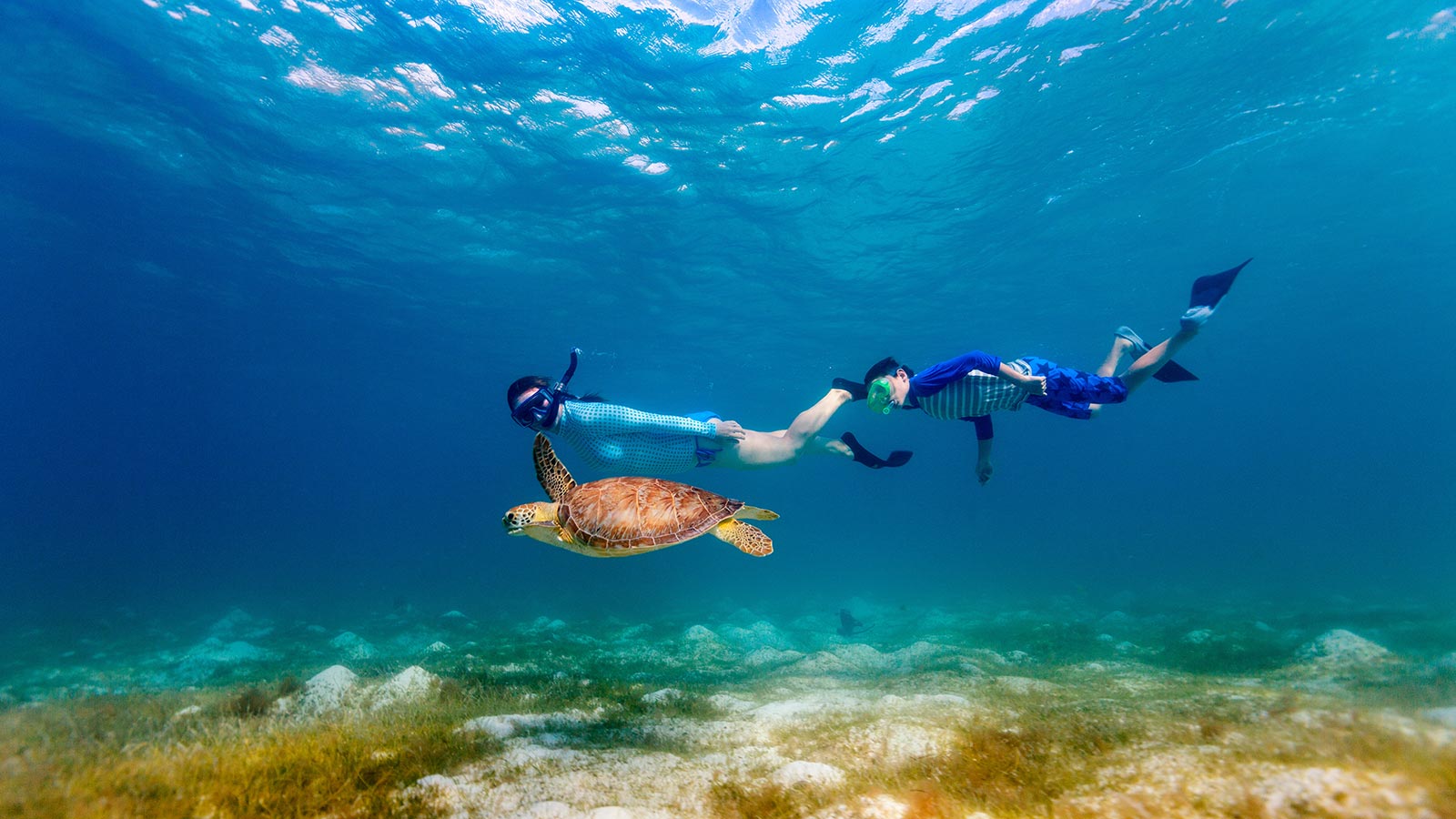
2. Respect Their Habitat: Always practice responsible snorkeling and diving. Avoid touching or disturbing the turtles, and be mindful of your surroundings to protect the delicate marine ecosystem.
3. Participate in Conservation Activities: Some resorts offer programs where guests can participate in turtle monitoring and conservation efforts. This hands-on experience can deepen your understanding and appreciation of these magnificent creatures.
4. Best Time to Visit: While turtles can be seen year-round in the Maldives, the best time for turtle encounters is generally during the dry season from November to April when visibility is at its best.
Conclusion
The Maldives is a sanctuary for sea turtles, providing them with the perfect environment to thrive. By visiting and supporting conservation efforts, you not only get to enjoy the beauty of these remarkable creatures but also contribute to their preservation. Whether you’re snorkeling in vibrant reefs or relaxing on pristine beaches, the opportunity to witness turtles in their natural habitat is an unforgettable experience. Embrace the magic of the Maldives and its enchanting turtles on your next adventure!
---
- News & Updates
- Travel Destinations
- Maldivian Tourism
- Healthcare & Wellness
- Lifestyle
- Personal Stories & Experiences
- Sports
- Water Sports & Adventure
- Accommodation & Stays
- Outdoor Activities
- Local Culture & Heritage
- Spa & Wellness
- Transportation
- Autre
- Fishes and Marine Species


